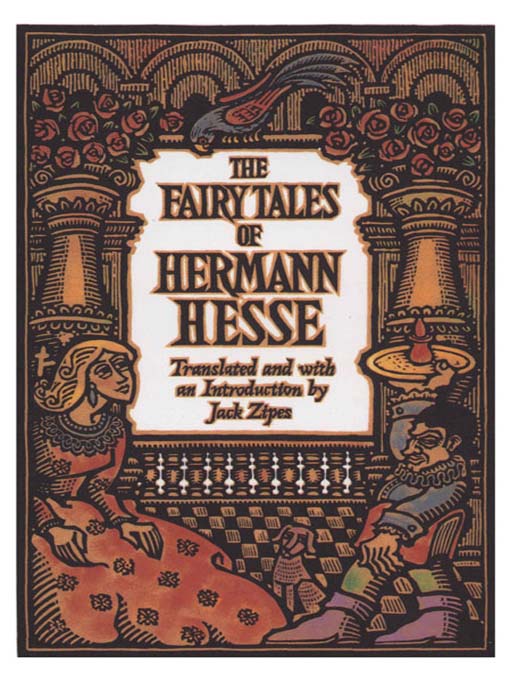-
Creators
-
Publisher
-
Release date
August 26, 2009 -
Formats
-
Kindle Book
-
OverDrive Read
- ISBN: 9780307420510
-
EPUB ebook
- ISBN: 9780307420510
- File size: 7343 KB
-
-
Languages
- English
-
Reviews
-
Publisher's Weekly
October 2, 1995
Merging Eastern mysticism with the motifs of the European fairy tale, the stories translated for this volume, many for the first time, offer insight into Hesse's development as an artist during the first two decades of this century. Sometimes lush and lyrical, sometimes in the simple language of the parable, these tales elaborate Hesse's concerns with mortality, the unity of life and the isolation of the artist. Characters renounce human society to become poets, vegetarians or, as in the fantastic story ``Faldum,'' a mountain. The artist as ascetic, observer and loner, misunderstood by his audience, is a recurring theme. Several of the stories reflect Hesse's pacifist stance during WWI, covering great spans of time to drive home the devastation of war and transience of civilization. Whether evoking the rise and fall of a nation or an individual, Hesse is preoccupied with the need for both to rediscover their ``undestroyed essence'' and begin anew. A refreshing lack of narrative closure distinguishes Hesse's tales, which mitigates an irritating tendency to equate self-knowledge with the return home to an eternal, spiritual mother. Quirky and evocative, Hesse's fairy tales stand alone, but also amplify the ideas and utopian longings of such counterculture avatars as Siddhartha and Steppenwolf. -
Library Journal
September 15, 1995
Hesse unerringly creates the feel of a fairy tale in the first paragraph of all these works but then proceeds to alter their development in an unmistakably 20th-century way. The title character of "Augustus," for example, loses everything and passes through a series of tribulations, like the traditional fairy-tale hero, but attains happiness without regaining his fortune, looks, health, or the love and affection of his friends. Slightly more than half these tales were written during World War I and consequently deal with the great themes of war and peace, life, suffering, and death. Particularly poignant is "A Dream of the Gods," which depicts the enthusiasm that greeted the outbreak of war while subtly exposing its folly. Lay readers will enjoy this as much as literary specialists.--Michael T. O'Pecko, Towson State Univ., Md. -
Booklist
October 1, 1995
Fairy tales fascinated Hesse. Translator Zipes analyzes this attraction and places it within the context of Hesse's emotionally turbulent life in his illuminating introduction. Zipes also describes the progression of Hesse's aesthetics from his early self-absorption and belief in the artist as hero to a more worldly perspective embracing social and political issues and emphasizing the artist's role as witness and critic. This outlook greatly elevated his writing, an evolution evident in this remarkable collection, the first published English translation of Hesse's fairy tales. Written between 1900 and 1933, Hesse's lucid, captivating, and unusual interpretations of the genre often feature heroes in search of self-knowledge and inner peace. Old-fashioned tales such as "The Dwarf" (1904) give way to such modern fables as "The City" (1910) and "The European" (1918). As Zipes astutely points out, the ogres and obstacles in Hesse's tales are what he considered to be the banes of modern existence: "science, materialism, war, alienation, and philistinism." A boon for Hesse fans, this is an important addition to Hesse's ever-popular English-language oeuvre. ((Reviewed Oct. 1, 1995))(Reprinted with permission of Booklist, copyright 1995, American Library Association.)
-
Formats
- Kindle Book
- OverDrive Read
- EPUB ebook
subjects
Languages
- English
Loading
Why is availability limited?
×Availability can change throughout the month based on the library's budget. You can still place a hold on the title, and your hold will be automatically filled as soon as the title is available again.
The Kindle Book format for this title is not supported on:
×Read-along ebook
×The OverDrive Read format of this ebook has professional narration that plays while you read in your browser. Learn more here.



